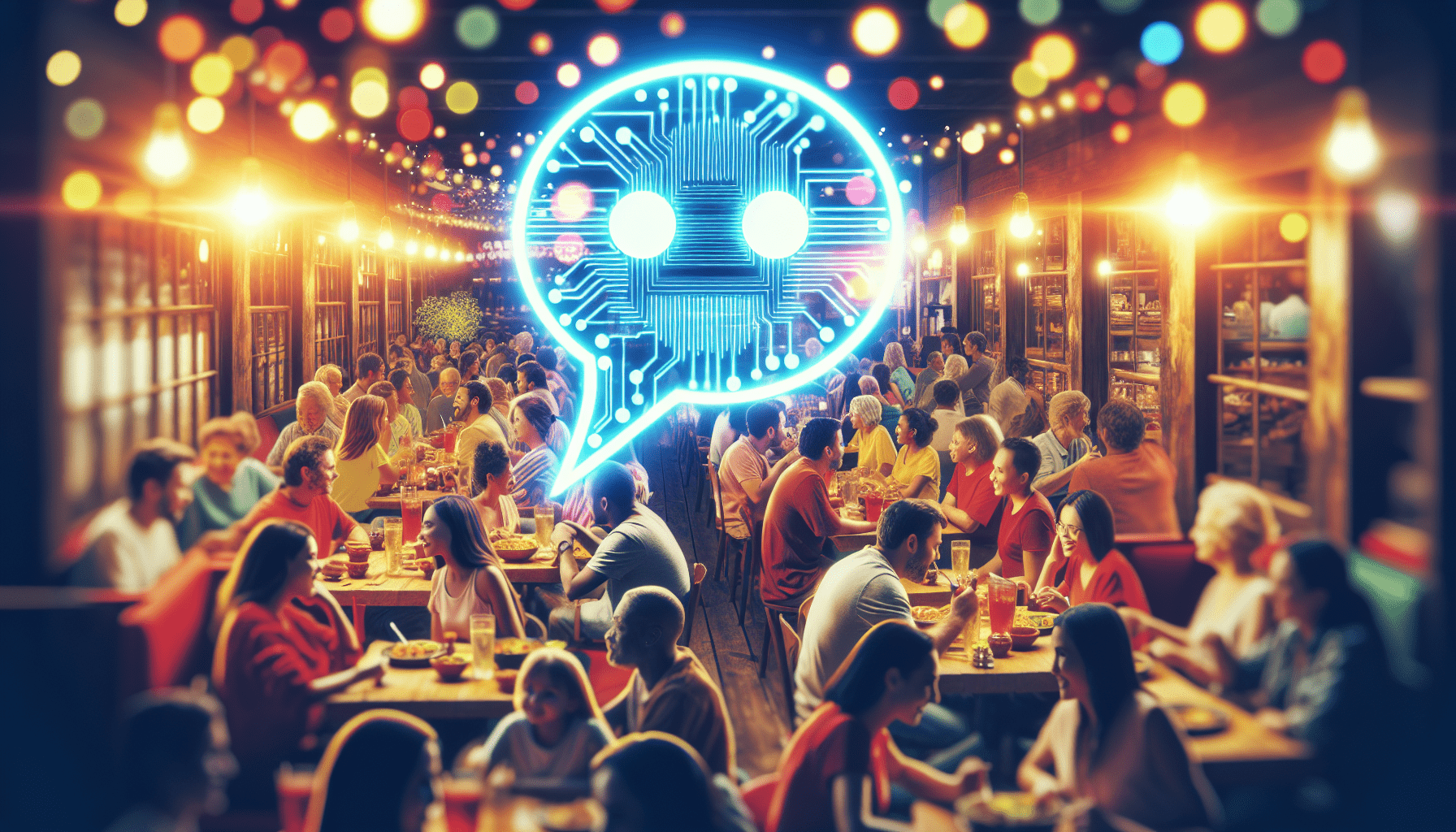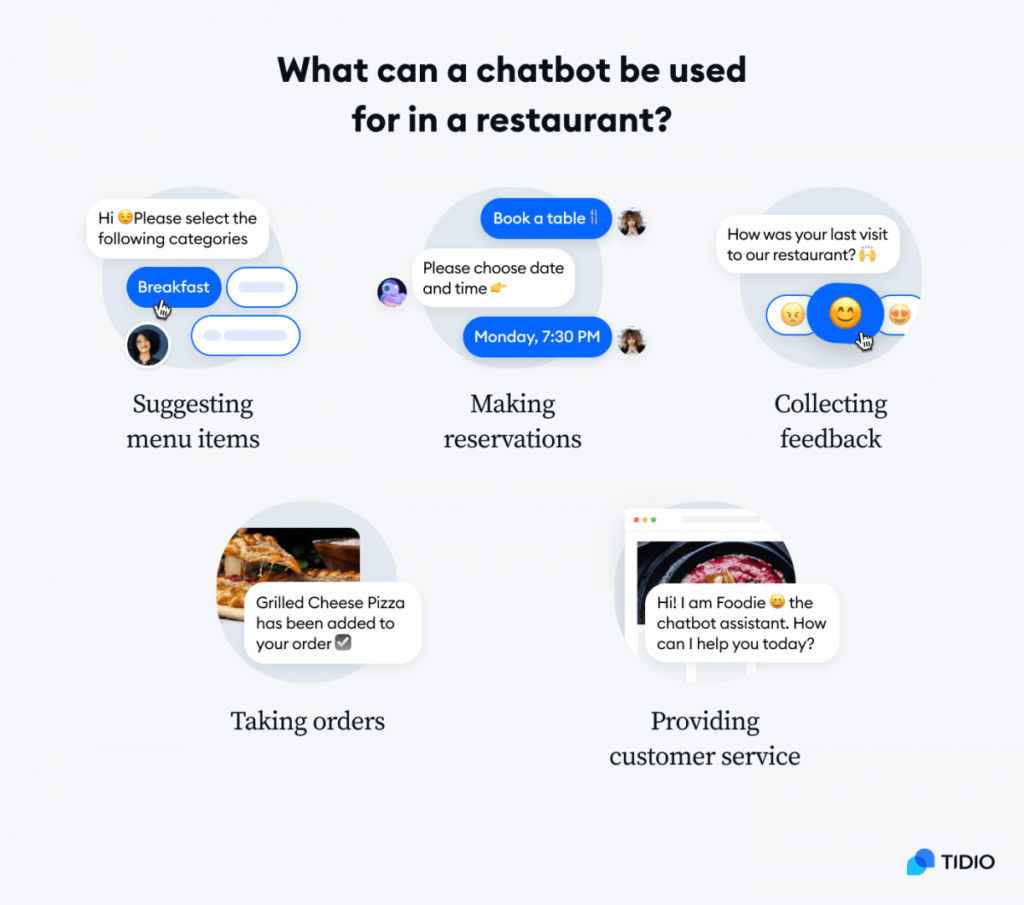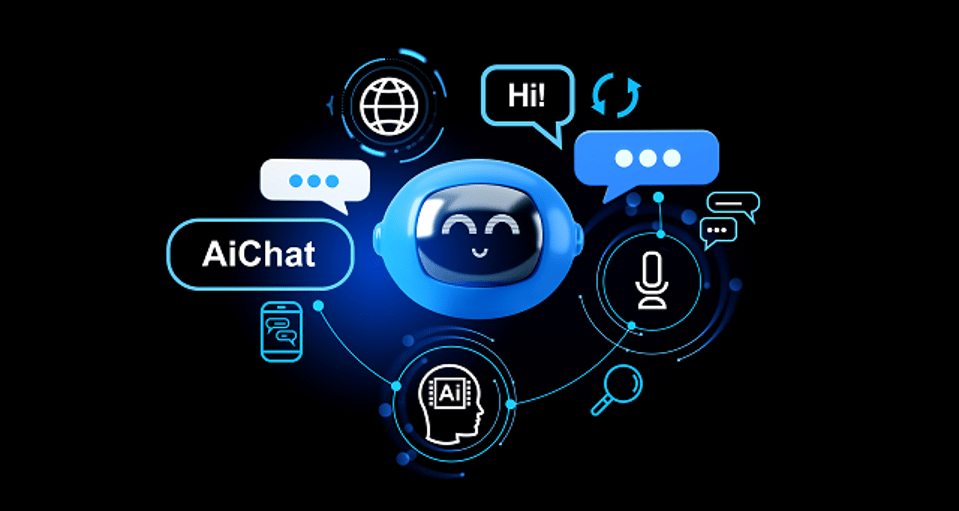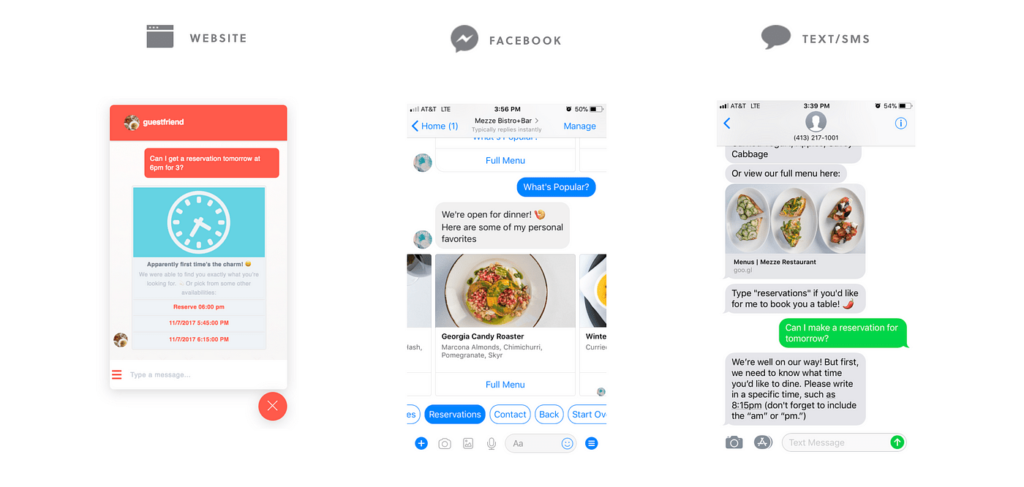Your cart is currently empty!
How AI Chatbots Can Revolutionize Customer Service For Local Restaurants

Imagine the possibilities when AI chatbots enter the world of customer service for local restaurants. In this article, you will discover the ways in which AI chatbots are set to revolutionize the customer experience in the restaurant industry. From enhancing communication to streamlining reservations, you’ll learn how AI chatbots can take customer service to the next level for your favorite local eateries.
How AI Chatbots Can Revolutionize Customer Service for Local Restaurants
In today’s fast-paced digital world, customer service plays a crucial role in the success of any business, especially in the competitive restaurant industry. Local restaurants are constantly looking for innovative ways to enhance the overall dining experience for their customers. One emerging technology that has the potential to revolutionize customer service for local restaurants is AI chatbots.

This image is property of www.tidio.com.
Understanding AI Chatbots in Customer Service
AI chatbots are computer programs that simulate human conversation through artificial intelligence. They are designed to interact with customers in a natural and engaging way, providing assistance, answering questions, and even taking orders. AI chatbots can be integrated into various platforms such as websites, social media, and messaging apps to provide real-time support to customers.
Benefits of AI Chatbots for Local Restaurants
1. 24/7 Customer Support
One of the primary advantages of AI chatbots is their ability to provide round-the-clock customer support. Local restaurants often have limited resources to offer customer service outside of business hours. AI chatbots can fill this gap by being available to assist customers at any time of the day, ensuring that no query or concern goes unanswered.
2. Increased Efficiency
AI chatbots can handle multiple customer inquiries simultaneously, improving the efficiency of customer service operations for local restaurants. By automating responses to frequently asked questions and routine tasks, AI chatbots free up human staff to focus on more complex issues and provide personalized service to customers.
3. Personalized Recommendations
AI chatbots can analyze customer data and preferences to offer personalized recommendations for menu items, promotions, and special offers. By understanding individual customer’s preferences and purchase history, AI chatbots can enhance the customer’s dining experience and increase loyalty towards the restaurant.

This image is property of www.ebotify.com.
Implementing AI Chatbots in Local Restaurants
1. Integration with Website and Social Media
Local restaurants can integrate AI chatbots into their websites and social media pages to provide instant assistance to online visitors. By incorporating chatbots into these platforms, restaurants can engage with customers in real-time, answer inquiries, and guide them through the menu and reservation process.
2. Order Taking and Reservations
AI chatbots can streamline the process of taking orders and reservations for local restaurants. Customers can interact with the chatbot to place orders, customize their meals, and make reservations without the need for human intervention. This not only improves the efficiency of the ordering process but also reduces the chances of errors.
3. Feedback and Customer Satisfaction
AI chatbots can be used to collect feedback from customers after their dining experience. By asking targeted questions about the service, food quality, and overall satisfaction, chatbots can help local restaurants gather valuable insights to improve their offerings and address any issues promptly. This proactive approach to customer feedback can enhance customer satisfaction and loyalty.
Overcoming Challenges in AI Chatbot Implementation
While AI chatbots offer numerous benefits for local restaurants, there are some challenges that need to be addressed for successful implementation.
1. Training and Maintenance
AI chatbots require regular training and maintenance to ensure they provide accurate and up-to-date information to customers. Local restaurants need to allocate resources for training the chatbot on new menu items, promotions, and customer interactions to maintain a high level of service quality.
2. Data Security and Privacy
Handling customer data through AI chatbots raises concerns about data security and privacy. Local restaurants must implement robust security measures to protect customer information and comply with data privacy regulations to build trust with their customers.
3. Integration with Existing Systems
Integrating AI chatbots with existing systems such as point-of-sale systems and customer databases can be a challenge for local restaurants. Seamless integration is essential to ensure a smooth customer experience and avoid disruptions in service.

This image is property of imageio.forbes.com.
Case Studies: Success Stories of AI Chatbots in Local Restaurants
1. Virtual Waiter at “Tasty Bites”
“Tasty Bites,” a local restaurant known for its innovative approach to customer service, implemented a virtual waiter AI chatbot to assist customers with ordering and reservations. The chatbot was programmed to understand customer preferences and offer personalized menu recommendations, resulting in a 20% increase in repeat customers and positive online reviews.
2. Reservation Assistant at “Gourmet Delights”
“Gourmet Delights,” a fine dining restaurant, introduced a reservation assistant AI chatbot on their website to streamline the booking process for customers. The chatbot enabled customers to check table availability, make reservations, and receive confirmation details instantly, reducing wait times and improving overall customer satisfaction.
Future Trends in AI Chatbots for Local Restaurants
As technology continues to evolve, there are several exciting trends in AI chatbots that local restaurants can leverage to enhance their customer service experience.
1. Voice-Enabled Chatbots
Voice-enabled AI chatbots are becoming increasingly popular, allowing customers to interact with restaurants using voice commands. Local restaurants can integrate voice recognition technology into their chatbots to offer a hands-free and intuitive ordering experience for customers.
2. AI-Powered Recommendations
AI chatbots can be enhanced with machine learning algorithms to provide more accurate and personalized recommendations to customers. By analyzing customer data in real-time, chatbots can suggest menu items, promotions, and specials tailored to individual preferences, leading to higher customer satisfaction.
3. Integration with Virtual Reality
Virtual reality technology can be integrated with AI chatbots to offer immersive dining experiences to customers. Local restaurants can create virtual menus, interactive tours of the restaurant, and even virtual dining rooms for customers to explore, enhancing engagement and creating a unique dining experience.

This image is property of miro.medium.com.
Conclusion
AI chatbots have the potential to revolutionize customer service for local restaurants by providing 24/7 support, increasing efficiency, and offering personalized recommendations to customers. By integrating AI chatbots into their operations, local restaurants can streamline the ordering process, collect valuable feedback, and enhance the overall dining experience for their customers. Despite some challenges in implementation, the benefits of AI chatbots far outweigh the drawbacks, making them a valuable asset for local restaurants looking to stay ahead in the competitive food industry.